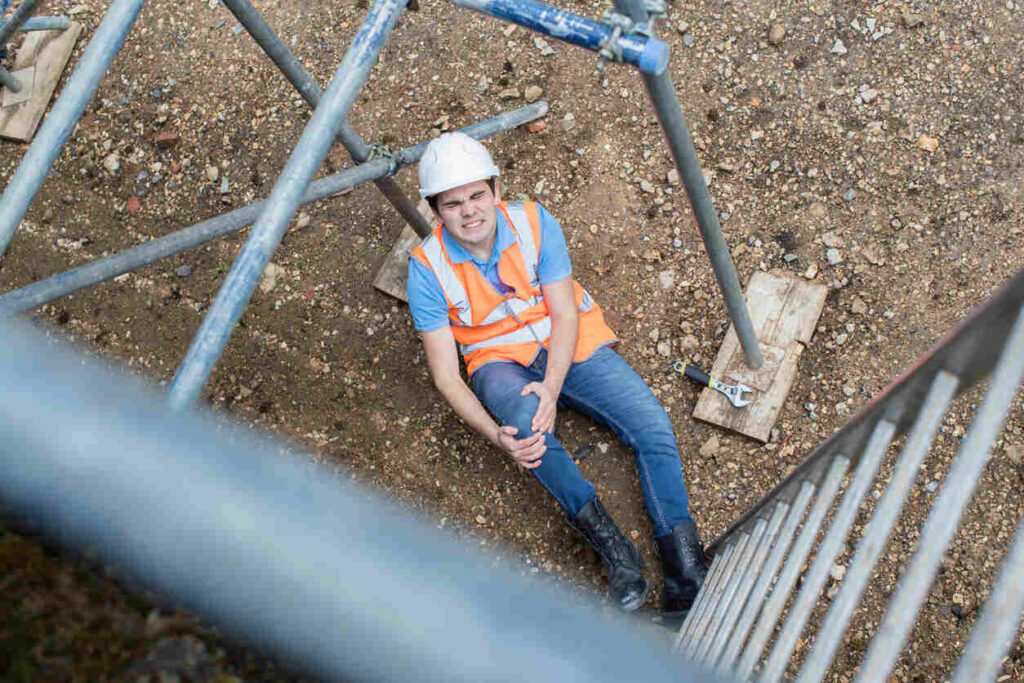Get Our Insider to Property Damage Brochure

How Scaffold Collapses Lead to Construction Accidents in North Carolina
April 11, 2025Scaffolding is a common sight on construction sites across North Carolina. These temporary structures allow workers to access elevated areas for tasks like painting, masonry, roofing, and window installation. But when scaffolds are not properly erected, secured, or maintained, they can collapse, leading to serious injuries or even fatalities.
At Dewey, Ramsay & Hunt, our Charlotte personal injury attorneys represent individuals injured in scaffold-related construction accidents. Whether you’re a worker on-site or an innocent bystander, here’s what you need to know about how scaffold collapses happen, the injuries they cause, and what legal options may be available.
What Causes Scaffold Collapses?
Scaffolding must be built to support not only its weight but also the weight of workers, tools, and materials. The structure can become dangerously unstable when basic safety procedures aren’t followed.
Common causes of scaffold collapses include:
- Improper assembly or installation – Using incorrect materials or failing to follow manufacturer guidelines can lead to structural failure.
- Overloading – Placing too much weight on a scaffold platform can cause it to buckle or collapse.
- Poor maintenance – Rusted joints, missing guardrails, or worn-out components weaken the structure over time.
- Foundation failure – If the scaffold is built on uneven, unstable, or soft ground, it may tilt or collapse.
- Weather conditions – High winds, heavy rain, or icy surfaces can destabilize scaffolds or cause workers to slip.
- Lack of proper fall protection – When safety harnesses and guardrails are missing, even a minor structural failure can result in catastrophic injury.
Who Gets Hurt in Scaffold Accidents?
Scaffold collapses often happen suddenly, without warning—giving nearby individuals no time to react or escape. While construction workers on or near the structure are the most common victims, they aren’t the only ones at risk. General contractors, subcontractors, electricians, painters, delivery personnel, building inspectors, and even pedestrians or members of the public passing near the site can suffer serious injuries when a scaffold fails.
In crowded construction zones like those in Charlotte and across North Carolina, the ripple effects of a scaffold collapse can be devastating for multiple individuals, even those not directly involved in the scaffold’s setup or use.
These accidents often result in:
- Traumatic brain injuries (TBIs).
- Spinal cord damage and paralysis.
- Broken bones and crush injuries.
- Internal bleeding and organ damage.
- Fatal falls from significant heights.
No matter who is hurt, the consequences are often severe—and the road to recovery can be long and expensive.
What Are Your Legal Options After a Scaffold Collapse?
In North Carolina, injured construction workers may be eligible for workers’ compensation benefits through their employer. However, if a third party—such as a subcontractor, equipment manufacturer, or property owner—was responsible for the collapse, you may also have a personal injury claim for additional compensation.
Our attorneys at Dewey, Ramsay & Hunt thoroughly investigate scaffold collapse cases to determine liability, identify all sources of compensation, and help our clients recover damages for:
- Medical bills.
- Lost wages and future earnings.
- Pain and suffering.
- Long-term disability or disfigurement.
We’re Here to Stand Up for Injured Workers and Families Throughout North Carolina
Scaffold collapse accidents are preventable, and someone should be held accountable when they happen. If you or a loved one has been hurt in a construction-related scaffold accident, you don’t have to face the aftermath alone.
Contact Dewey, Ramsay & Hunt at 704-377-3737 or online for a free consultation. Our Charlotte construction injury attorneys are ready to fight for your deserved justice and compensation.
Your Injury, Our Fight. How can we help you take a stand?
Because every case is different, the description of awards and issues previously managed by our law firm does not guarantee a similar outcome in current or future cases.

